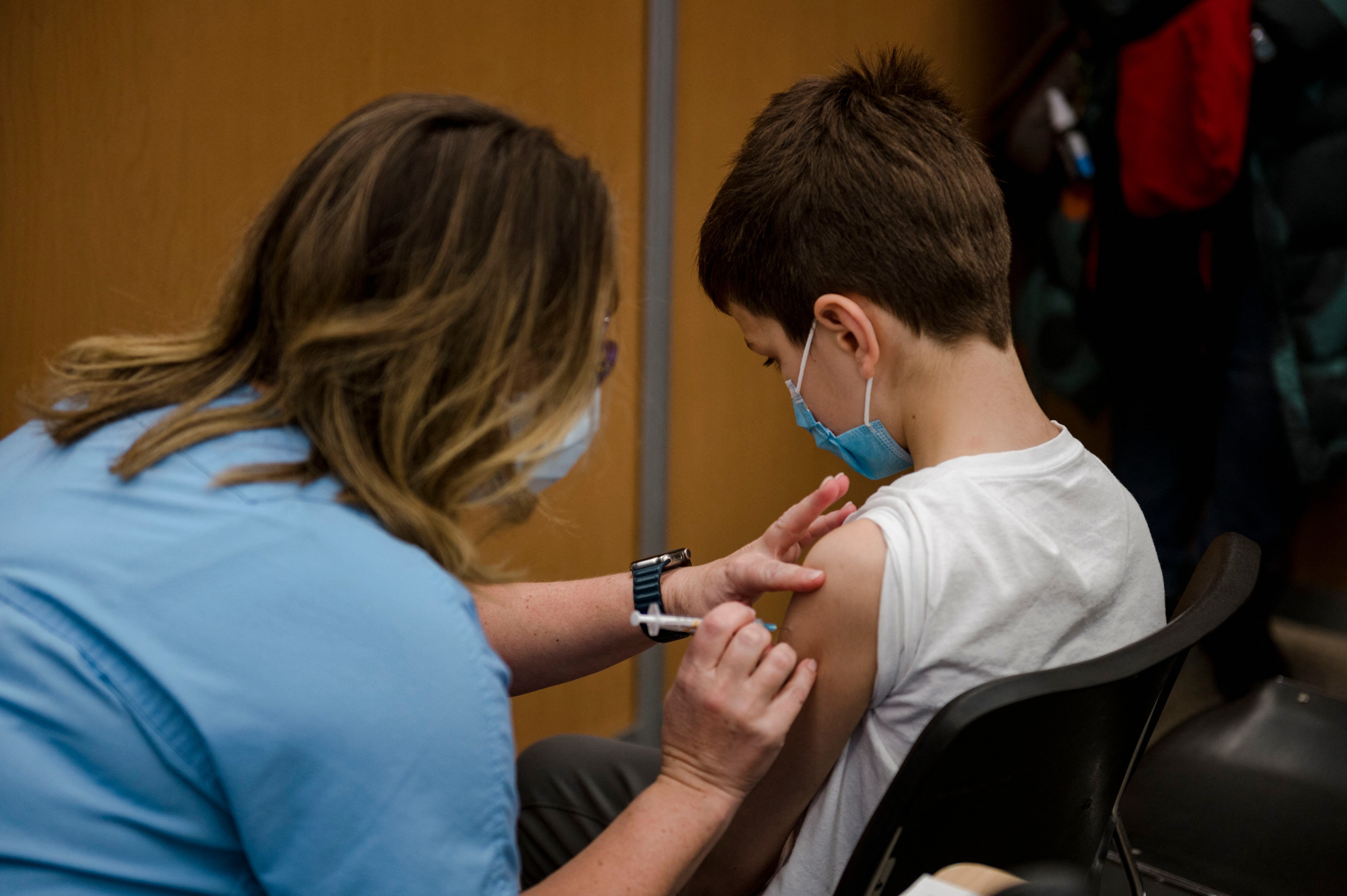
Two doses of Pfizer and BioNTech’s COVID-19 vaccine protected children ages 5 to 11 against severe omicron disease, but immunizing capacity was rapidly lost in much of this age group, according to a study. study conducted by New York State researchers.
Vaccine efficacy against infection among those children dropped to 12% in late January from 68% in mid-December compared with children who were not vaccinated, according to the study, which has not yet been peer-reviewed.
For those ages 12 to 17, the vaccine’s protection against infection fell to 51% in late January from 66% in mid-December.
“These results highlight the potential need to study alternative doses of vaccines for children and the importance of protection from various aspects, including the use of masks, in order to prevent infection and transmission,” the researchers said.
The vaccine was about 48% effective in preventing hospitalization among the youngest age group, and 73% among adolescents, the data showed. The figure is less than 100% and 85% effective, respectively, against hospitalization for the two age groups in mid-December.
Dr. Paul Offit, an expert in pediatric infectious diseases at the Children’s Hospital of Philadelphia, questioned whether the data was strong enough to say that the vaccine’s effectiveness had dropped significantly, especially with regard to the development of severe symptoms.
“It’s not surprising that protection against mild illness is diminishing,” he said. “We know that the omicron variant is somewhat elusive to protection against mild disease. The goal of the vaccine is to prevent severe symptoms, in order to keep children out of the hospital.”
He added that the number of hospitalizations was too low to draw clear conclusions and that there was little information on why the children were hospitalized. He noted that protection against prior infections among the unvaccinated could also skew the numbers. “Natural infection can protect against serious diseases,” she maintained.
Younger children receive a lower 10-microgram dose of the vaccine than children ages 12 to 17, who receive the same 30-microgram dose as adults and are eligible for a third booster shot.
Pfizer said it is studying a three-dose series of the vaccine in the pediatric population, noting that studies in adults suggest “people vaccinated with three doses against COVID-19 may have a higher degree of protection.”
Source: Gestion
Ricardo is a renowned author and journalist, known for his exceptional writing on top-news stories. He currently works as a writer at the 247 News Agency, where he is known for his ability to deliver breaking news and insightful analysis on the most pressing issues of the day.












